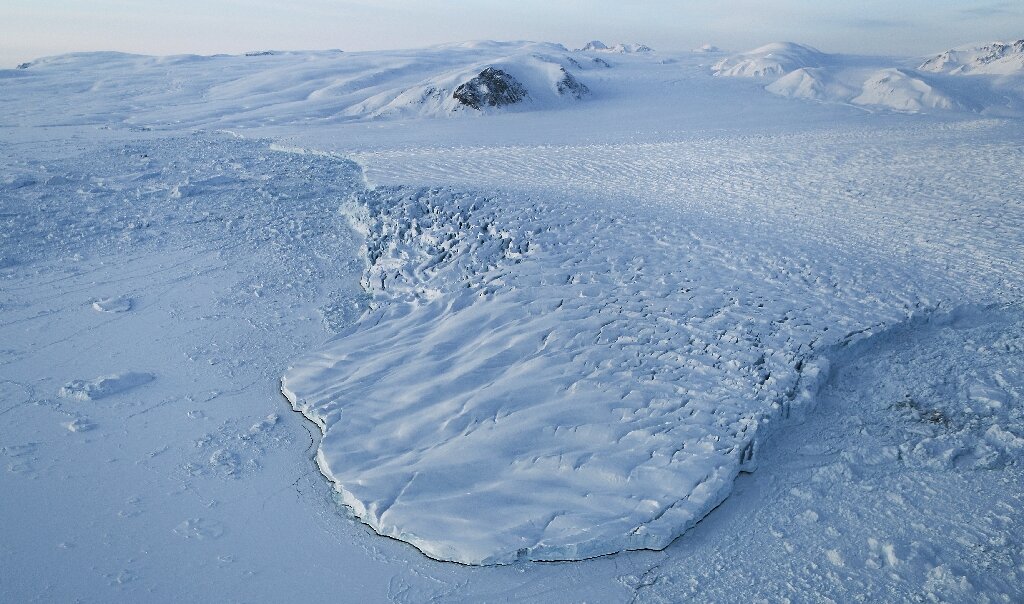In the past decade, Greenland has lost over 3.5 trillion tonnes of ice. It has increased the global sea level by one centimeter, as per the reports. As the ice sheet across Greenland is melting at an alarming rate, it poses grave risks.
According to the research study reports presented on Monday, the concerning frequency at which the ice is melting is significantly heightening the worldwide flood risks. The island consists of frozen water that can increase ocean levels by six feet or 20 meters globally. For the past 40 years, the melting Greenland ice sheet has raised concerns about the fatal flood risks.
The Greenland ice that melts away due to human-induced climate change flows like water into the ocean. Hence, it is contributing to global sea-level rise. Because of Earth’s warming climate, Greenland loses more ice than it gains each year. The acceleration of the melting rate hence is exposing more catastrophes which can severely risk lives and livelihoods. The ice sheet of Greenland is melting faster than any time in the past 12,000 years.
What does the new study reveal?
While Greenland is among the most studied places on the planet by climatologists, the first research of its kind was conducted on Monday. It is because it made use of satellite data for detecting the runoff of the Greenland ice sheet.
The researchers present a report in the journal Nature Communications, according to which the runoff rate of Greenland has increased by 21% in the last 40 years. Another striking news is that since 2011, the ice sheet has lost 3.5 trillion tonnes of ice.
Threats posed by rising sea level
According to the European Space Agency, the quantity of melted ice has considerably raised sea levels globally. Hence, it has magnified the risks of food-related events and has put the lives of coastal communities at higher risks. It is also disrupting marine ecosystems in the Arctic Ocean.
The research study further adds that one-third of ice had melted in the last ten years, in just two summers of 2012 and 2019. It has raised the global sea level by one centimeter. The rise in ocean levels is causing imbalances, altering ocean patterns, and is affecting weather conditions globally.
Thomas Slater, the study lead author from the University of Leeds, UK, has remarked that Greenland is highly vulnerable to changes in weather conditions. The warming climate is causing Greenland to melt rapidly. The recent observations using satellites are helping them to record such occurrences better, to predict what may happen.
Improved predictions of how Greenland is melting due to the current climate models will help forecast how much Greenland will raise the sea level. It will enable the researchers to understand complex ice melt processes better.

